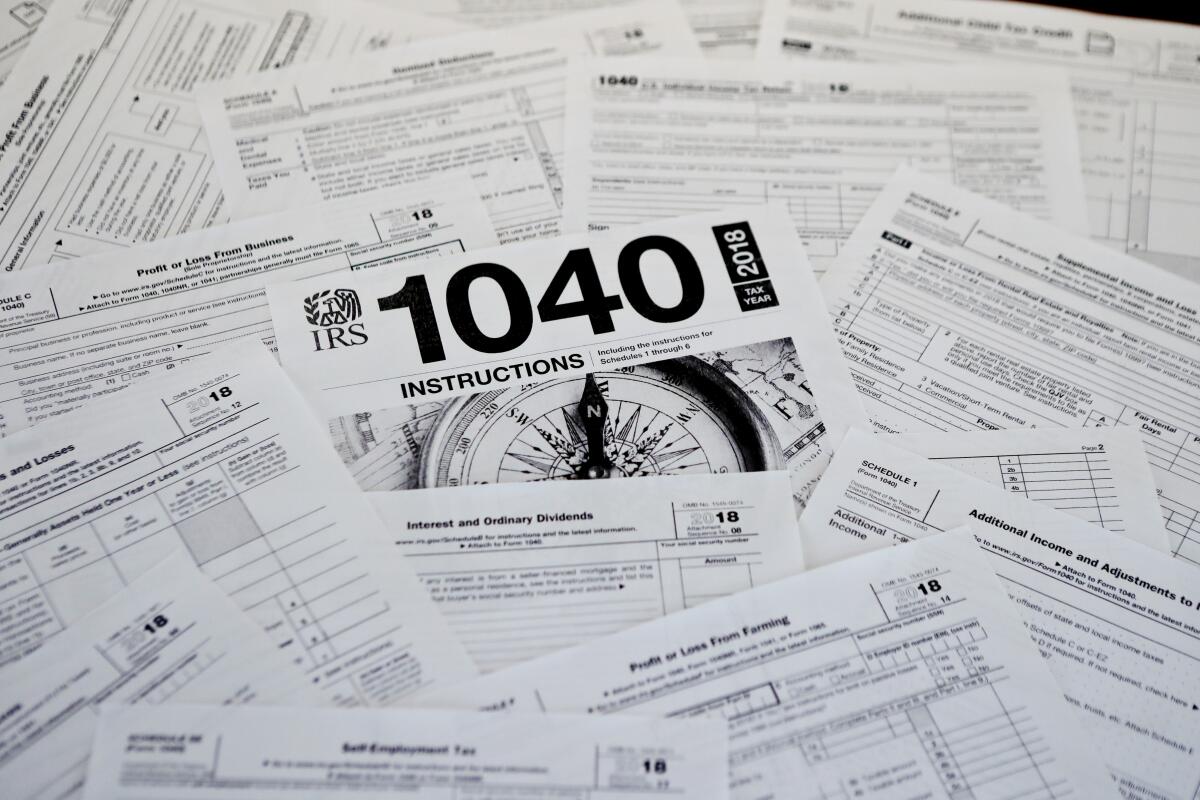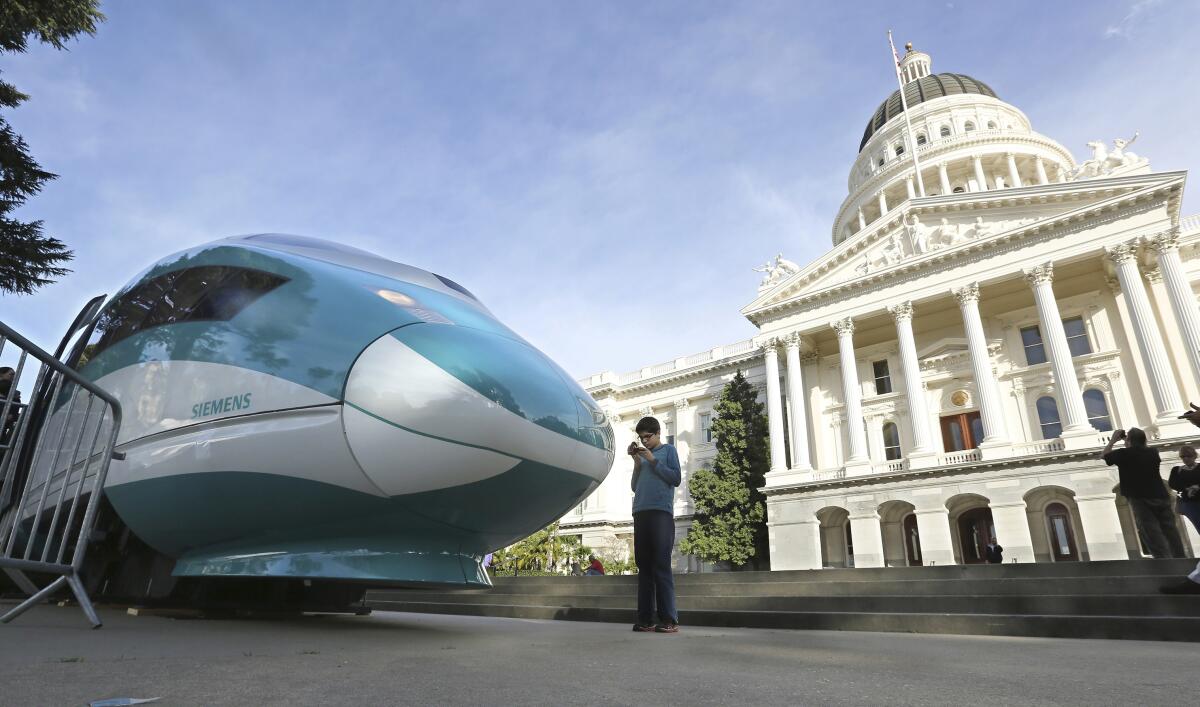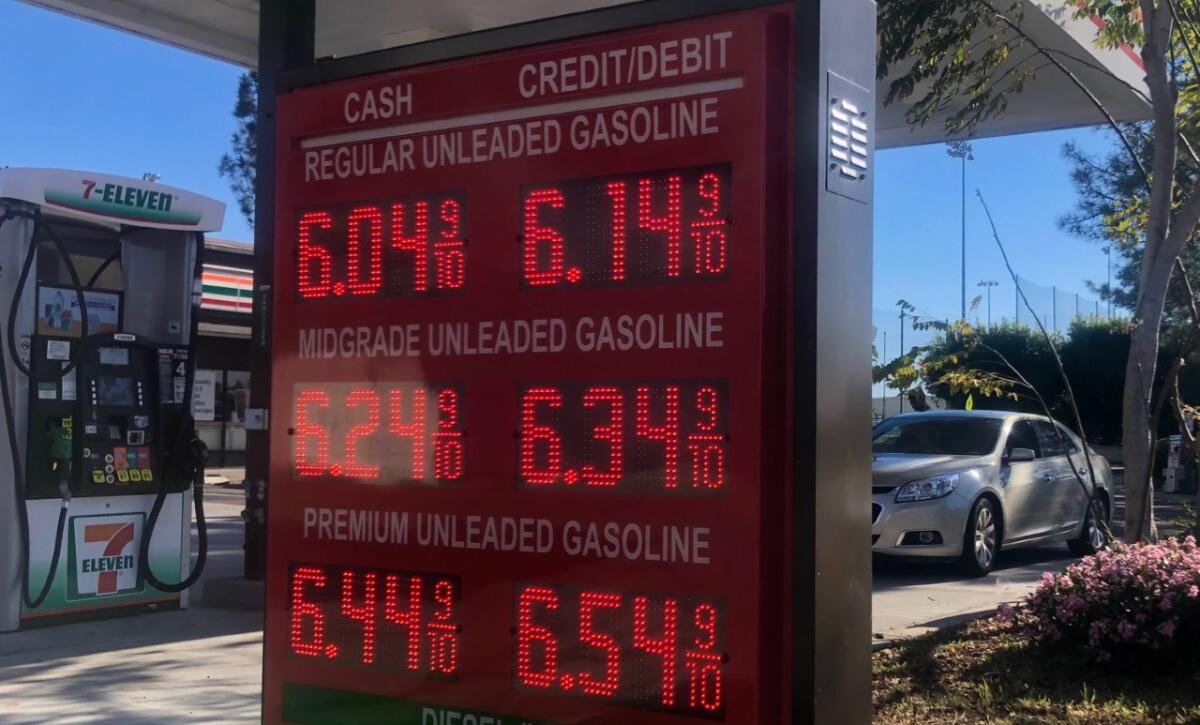California Politics: The taxes paid by 100,000 millionaires

When Gov. Gavin Newsom and state lawmakers settle on details of a new California budget in June to provide another year of government services for almost 40 million people, they will do so largely by tapping the fortunes of one of the most exclusive groups of taxpayers in the nation.
The group includes almost 100,000 taxpayers with incomes above $1 million — residents who represent only about one-half of 1% of all tax returns filed in the state but collectively pay about 40% of all California personal income taxes.
As tax day approaches, it’s this small subset of people who will likely again provide an outsize amount of government cash, a reminder of how dependent the state is on their fortunes.
96,322 tax filers. $35.3 billion in payments
State officials compile a robust amount of information about tax collections and the Californians who pay, delineated into categories such as adjusted gross income, taxable income and tax liability. But it’s a snapshot of what’s in the rearview mirror: the state Franchise Tax Board’s most recent report is from 2019 and agency officials didn’t respond to a Times request for any partial data sets that might have been compiled from 2020 or 2021.
Even so, the fundamentals are unlikely to change.
California’s progressive income tax policy, by which those who earn more are expected to pay more, has always been intended to skew collection toward a relatively small number of taxpayers. That group of high-income earners has grown in recent years, as has their total tax liability.
State data show that of the more than 17.5 million personal income tax filings in 2019, there were 96,322 tax forms with an adjusted gross income of at least $1 million. These taxpayers had a collective tax liability of $35.3 billion — the single biggest share of the state’s $90 billion in personal income taxes.
So what else does the most recent state tax data tell us about California’s millionaires?
We know this small group of taxpayers reported about $300 billion in taxable income, more than one-fifth of the state’s total. And we know they reported about 9% of the state’s wage and salary earnings but 42% of taxable income earned from interest payments and almost 45% of taxable income earned from stock dividends — a reflection of how investments, not paychecks, drive the income of the most wealthy.
But millionaires are hardly the only story worth telling about California’s progressive income tax system.
Widen the lens to include all California income tax returns with an adjusted gross income of $500,000 a year or more — a view that takes in about 17% of all tax filings in 2019 — and you end up with a group of taxpayers who owed $46.4 billion, more than half of the statewide total.
Or narrow the lens and examine the wealthiest Californians, those earning at least $5 million a year. State tax data show these residents owed $19 billion in taxes in 2019 — one-fifth of the state’s total and paid from only 10,344 tax returns.
Modest incomes for most
Most California taxpayers live far more modest lives. The data show they don’t collect the kind of paycheck that would make them affluent, especially given the relatively high cost of living in the Golden State.
The state Franchise Tax Board reports that 77% of all income tax returns filed in 2019 (13.6 million in all) reported an adjusted gross income of less than $100,000. And more than half of the returns reported income of less than $50,000. An important caveat to these numbers is that they capture all personal income tax returns, including those from people whose earnings were so low that no taxes were triggered. But even among those who owed taxes, two-thirds of all personal income tax filings were from people whose annual income was below $100,000.
In other words, the divide between the haves and have-nots in California is easy to see in who pays taxes. And it’s important to remember that more than 6 million Californians lived in poverty in 2019, according to researchers at the nonpartisan Public Policy Institute of California.
The size of the surplus?
Expectations are that this year’s tax day — moved to April 18 to accommodate a local holiday in the District of Columbia — will again see tax revenues above projections made earlier this year by state government budget analysts.
The biggest days for income tax payments are expected early next week. But in just the first seven months of California’s fiscal year, personal income tax receipts were $10 billion above estimates. The numbers, though, are hard to quickly put into context, especially after tax law changes might have skewed the timing of some payments.
Even so, it’s safe to say Newsom and lawmakers will again have a surplus of tax revenue to divvy up once they begin negotiations on a new state budget in late May, one that could be as large as $30 billion.
Enjoying this newsletter? Consider subscribing to the Los Angeles Times
Your support helps us deliver the news that matters most. Become a subscriber.
High-speed rail hangs on with voters

One thing critics of California’s high-speed rail have long demanded is an electoral do-over, a new statewide election to determine whether the complex and delayed project should continue or be shuttered.
But a new vote might not turn out the way they expect. Thursday’s poll from UC Berkeley’s Institute of Governmental Studies, co-sponsored by the Log Angeles Times, found that 56% of registered voters support continuing the effort. That’s even when presented with information highlighting the project’s higher-than-originally-expected costs and a longer timeline for completion.
Thirty-one percent of voters surveyed strongly supported a continuation while 25% strongly opposed doing so. There was a predictable partisan divide in the findings. Support was especially strong (65%) among voters under the age of 40 and among Black (70%) and Latino (64%) voters.
Meanwhile, some key funding for the project remains stuck in a Sacramento standoff between Newsom and a few powerful Democratic legislators. Look for the topic to get more attention during state budget negotiations later in the spring.
California politics lightning round

— More than a month after Newsom pledged to give Californians money to offset rising gas prices, he and state lawmakers have yet to find common ground on the most basic details of the plan.
— California will not require schoolchildren to be immunized for COVID-19 after Newsom announced Thursday that he is pausing a state mandate and state Sen. Richard Pan (D-Sacramento) pulled his bill from further consideration.
— Newsom is pushing back on claims that he unduly interfered with a discrimination case being brought against Activision Blizzard Inc. after an attorney at the state agency handling the lawsuit suggested the governor was doing the bidding of the video game giant.
— Even as Newsom boasts of California’s economic resurgence after the COVID-19 lockdowns, the tens of thousands of Californians living on the streets have become a central focus of the long-shot candidates hoping to deny the Democratic governor a second term.
— An estimated 2.4 million Californians could see a boost in their tax refunds next year under a legislative proposal that would dramatically increase the state’s renters’ tax credit for the first time in more than four decades.
— Here’s a snapshot of this year’s legislative efforts to tackle California’s housing crisis.
Stay in touch
Did someone forward you this? Sign up here to get California Politics in your inbox.
Until next time, send your comments, suggestions and news tips to politics@latimes.com.
Sign up for Essential California
The most important California stories and recommendations in your inbox every morning.
You may occasionally receive promotional content from the Los Angeles Times.




